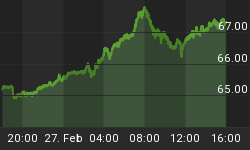Congratulations (of sorts) once again go to Illinois, the only state in the Midwest where SNAP (food stamp) growth outpaced job creation during the recovery. SNAP stands for Supplemental Nutrition Assistance Program, renamed from "food stamps" so as to not sound so derogatory.
What follows is a guest post from Michael Lucci, Vice President of Policy for the Illinois Policy Institute.
Illinois' dismal business climate continues to inhibit jobs growth, especially in manufacturing, as the state put 25 people on food stamps for every factory job created during the recovery from the Great Recession. Illinois is the only state in the Midwest to have added more people to food-stamp rolls than to employment rolls during the recovery from the Great Recession. Job losses from the Great Recession occurred from January 2008 to January 2010, and since then, states have had five-and-a-half years of recovery.
During the recovery from the Great Recession, the Land of Lincoln, alone in the Midwest, had more people enter the food-stamps program than start jobs. Food-stamps growth in Illinois has outpaced jobs creation by a 5-4 margin.

In every other Midwestern state, jobs growth has dramatically outpaced food-stamps growth during the recovery. In fact, in every other state in the region, jobs growth dwarfs food-stamps growth. But during the recovery, Illinois put more people on food stamps than every other Midwestern state combined.

Manufacturing has borne the brunt of Illinois' policy failures. From the state's broken workers' compensation system, to the highest property taxes in the region, to the lack of a Right-to-Work law while surrounding states enact Right to Work, Illinois has the worst policy environment in the Midwest for manufacturers.
The result for Illinois factory workers? The Land of Lincoln has put 25 people on food stamps for every manufacturing job created during the recession recovery.

And the recovery that Illinois' manufacturers have experienced has been especially anemic. After losing 117,000 manufacturing jobs during the recession, Illinois has only regained 17,400 of those factory jobs since January 2010. Meanwhile, the other Great Lakes states have pulled far ahead of Illinois during the recovery. Michigan has added 135,600 manufacturing jobs, Indiana has added 80,400, Ohio has added 74,500 and Wisconsin has added 48,700.

Illinois' lack of jobs growth, especially in blue-collar industries, has driven more and more Illinoisans to dependency on government, while residents of the other Great Lakes states join the ranks of the employed and leave the food-stamps program. Michigan surpassed Illinois in 2014 for manufacturing jobs created, while Illinois has surpassed Michigan for the percentage of residents on food stamps. Illinoisans depend on food stamps more than do the residents of any other state in the region.

Illinois' slow jobs growth and increased government dependency - particularly when contrasted with the success of its neighbors - demonstrate the importance of Gov. Bruce Rauner's Turnaround Agenda, which addresses Illinois' top economic reform needs. Those include:
- Reforms for the costliest workers' compensation system in the Midwest
- A tax freeze and reforms for the highest property taxes in the Midwest
- Lawsuit reform for the worst-ranked litigation climate in the Midwest
Illinois needs reform in many areas, including government-worker pensions, fair election maps and term limits for politicians. But Illinois must start with turning around the state's economy to facilitate more opportunities for jobless Illinoisans, and more tax revenues from increased growth. Rauner's Turnaround Agenda would put Illinois on the path toward responsible budgets, improved jobs growth and decreasing government dependency.
Michael Lucci, Vice President, Illinois Policy Institute
Mish Comment: Mayor Rahm Emanuel's "progressive" answer is to seek the biggest tax hike in history. Emanuel plans to leave no stone unturned when looking for revenue.
For details, please see Chicago Tax Collector Hath Arrived With Massive Tax Hike: Emanuel Says "No Stone Unturned ... Not Done Yet"















